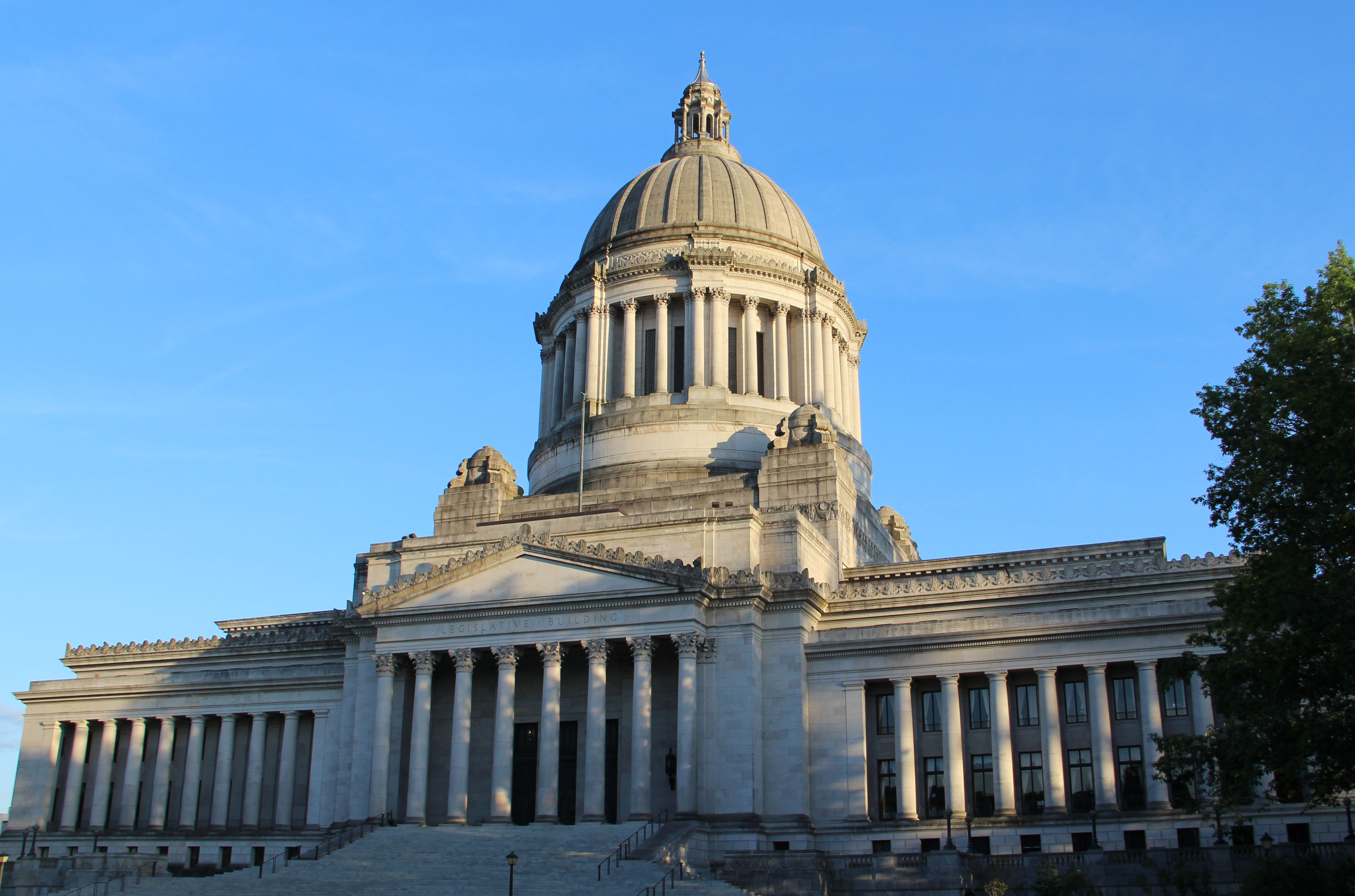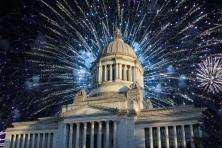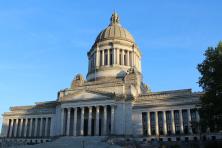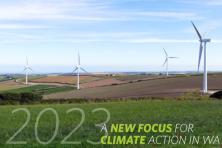We’re on day 45 of Washington’s 2023 Legislative session, and we have officially passed our first big deadline this year—policy committee cutoff, when bills need to have passed out of policy committees in order to continue moving forward. Washington is a national leader in taking action to address the climate crisis, and climate continues to be a priority for the Legislature this year.
Our work in 2023 focuses on implementing our recently passed climate laws and allocating Climate Commitment Act funds in the state budget. While this is different from previous years’ policy campaigns, it’s just as critical to ensure that clean air and clean energy benefits are accessible to all Washingtonians.
Below you’ll find some important climate policies still in play.
Low- and middle-income electrification program
Climate pollution from buildings has grown faster than any other sector in the state, and using gas in our homes also harms our health—1 out of 8 childhood asthma cases can be directly linked to using gas appliances indoors. We have made incredible strides to address pollution from Washington’s new buildings, but it’s time to focus on transitioning our existing homes and buildings to all-electric. To ensure equitable access to clean technologies, we are advocating that the Legislature appropriate $200 million for heat pumps and other electric appliance incentives for low- and middle-income households, schools in overburdened communities, and small businesses. Budget negotiations are active and ongoing.
Zero-emission medium- and heavy-duty vehicle program
Although climate pollution from passenger vehicles has remained relatively steady, climate pollution from medium- and heavy-duty vehicles (such as semi-trucks, garbage trucks, delivery vans, and transit and school buses) has doubled since 1990, and diesel exhaust is responsible for 70% of the cancer risk from air pollution in Washington. We are advocating for the Legislature to dedicate $250 million to decarbonizing large vehicles through incentives for vehicles, charging infrastructure, and pilot programs. There is strong interest, and we recently sent budget writers a letter with over 20 organizations and businesses supporting these programs. Budget negotiations are active and ongoing.
Siting (HB 1216)
The transition to 100% clean electricity, transportation, and buildings is already underway, but whether or not clean energy jobs come quickly to Washington hinges on a more coordinated and efficient siting and permitting process. HB 1216 addresses this by requiring significant upfront planning and engagement while increasing the state’s capacity to examine a growing number of project proposals. We have worked closely with environmental partners, PSE, and labor to ensure that we facilitate clean energy development in-state while also engaging communities and maintaining environmental protections. HB 1216 moved out of its policy committee and is expected to move out of its fiscal committee on February 23rd.
Clean energy incentive navigator (HB 1391)
Between utility incentives, federal incentives, and state incentives, it can be difficult for customers to know which programs they qualify for. The clean energy navigator bill would establish a system to help residential building owners, small commercial building owners, and tenants better understand and access clean energy programs by finding energy audit services, identifying contractors, and assisting with securing financing. HB 1391 moved out of the policy committee and is expected to move out of its fiscal committee on February 23rd.
Zero-emission school buses (HB 1368)
Most school buses run on diesel, which creates climate pollution and is a carcinogen. Frequent exposure can cause serious health problems and hinder cognitive development. Kids are especially vulnerable, with their faster breathing rates and still-developing lungs. This bill requires that new school bus purchases are zero-emission starting in 2033 and creates a new grant program for purchases of these buses. We strongly support this and are working on further improvements such as an accelerated timeline. HB 1368 moved out of its policy committee and is waiting to be scheduled for its fiscal committee hearing.
Utility shut-offs (HB 1329/SB 5366)
With increasing summer temperatures and impacts from heat, it is critical for health and safety that people’s utility services do not get disconnected during heat waves. HB 1329/SB 5366 would prevent electric and water utilities from terminating service to residential customers when temperatures are expected to go above 90F and prohibit landlords from cutting off electric or water services to their tenants. Washington currently has a winter moratorium on utility shut-offs (which also applies to gas utilities) for low-income customers only, which is in effect during winter months rather than triggered by a specific temperature. Both bills passed out of their policy committees and are waiting in the Rules Committee to be sent for floor votes.
Puget Sound Energy decarbonization (HB 1589)
Washington gas utilities must begin planning now to achieve the State’s required climate pollution requirements. HB 1589 requires Puget Sound Energy—Washington’s largest utility—to file a gas decarbonization plan and ensure no new residential and commercial customers connect to the gas system. We support the overall direction of the bill but continue to have concerns about the regulatory mechanisms included, and we are working with the bill sponsor and company to address our concerns. HB 1589 moved out of its policy committee and is waiting in the Rules Committee to be sent for a floor vote.
What’s next?
Friday, Feb. 24 marks Fiscal Committee Cutoff, the last day that bills can be voted out of fiscal committees before going to the floor for a vote by the House or Senate. The Floor Cutoff is March 8th, at which point bills must have passed out of their house of origin to stay in play.
We will post more updates on all our priorities, so keep an eye out for ways to engage and act by signing up for our WA Action Alerts email list.





